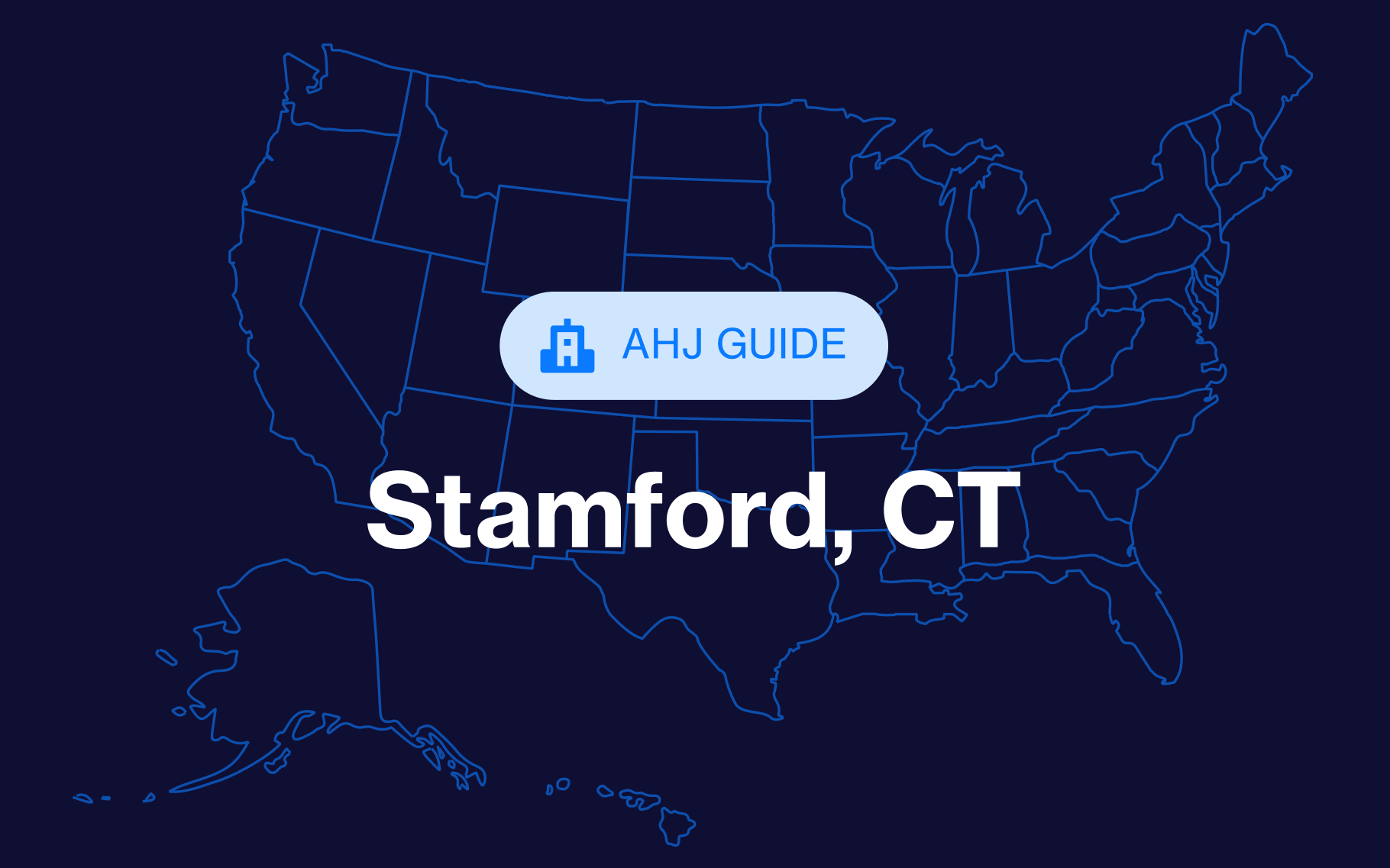Connecticut requires a building permit for most construction projects, with enforcement carried out at the local level by municipal building departments. The state follows the Connecticut State Building Code (CSBC).
For contractors, developers, and home services businesses, navigating Connecticut’s permitting system means understanding both statewide code standards and local enforcement practices. Municipalities often require detailed documentation, and many towns have unique zoning or environmental considerations that can impact approval timelines.
Who issues building permits in Connecticut?
In Connecticut, local building officials in each city or town issue permits and perform inspections.
Every municipality has its own building department responsible for:
- Reviewing building permit applications
- Conducting plan reviews
- Issuing trade permits (plumbing, electrical, HVAC)
- Performing site inspections
- Issuing final certificates of occupancy
Examples of local building departments include:
- Hartford Department of Development Services
- Stamford Building Department
- New Haven Office of Building Inspection & Enforcement
The State Building Inspector (within the Department of Administrative Services) provides technical code guidance and interpretation but does not issue permits directly.
When do you need a Connecticut building permit?
A building permit is required for nearly all construction, alteration, or demolition that affects structural integrity, safety systems, or building use.
Common projects include:
- New residential and commercial structures
- Additions, structural remodels, and major renovations
- Electrical, plumbing, and mechanical system installations or replacements
- Roof replacements, siding, and window/door changes (if altering size or structure)
- Fire protection systems and accessibility upgrades
- Decks, porches, and garages
- Demolition of existing buildings or structures
Exemptions (vary by municipality):
- Cosmetic work (painting, flooring, trim, cabinets)
- Small accessory sheds or play structures under a square footage threshold
- Minor repairs that do not affect structure or systems
Connecticut building permit requirements
A typical permit application requires:
- Completed municipal building permit application form
- Construction drawings (engineer/architect stamped when required)
- Site plan and survey (showing setbacks, lot coverage, and zoning compliance)
- Energy code compliance documentation (per CSBC requirements)
- Contractor license or registration (if applicable)
- Estimated project cost for fee calculation
For larger projects, additional approvals may be required, such as:
- Zoning board review
- Inland wetlands/watercourse permits
- Health department review (for septic or well projects)
Connecticut building permit costs
Permit fees in Connecticut are set by municipalities and generally based on construction valuation.
Typical permit fee ranges:
- Residential new construction: $10–$20 per $1,000 of estimated project cost
- Commercial projects: $15–$25 per $1,000 of estimated project cost
- Trade permits (plumbing, electrical, HVAC): $50–$200 each
- Demolition permits: $50–$250 depending on structure size
Unique considerations when permitting in Connecticut
Zoning compliance
Many towns have strict zoning and setback rules that must be satisfied before permits are issued.
Energy efficiency
Connecticut enforces the Connecticut Energy Code, which has stricter efficiency standards than some other states.
Environmental regulations
Development near wetlands or waterways often requires additional approvals from the local Inland Wetlands and Watercourses Commission.
Historic preservation
Older towns (e.g., Hartford, New Haven, Mystic) may require historic district commission approval for exterior work.
How to get a building permit in Connecticut
- Confirm jurisdiction – Identify the local building department for the project’s municipality.
- Check zoning compliance – Obtain zoning approval if required before applying.
- Prepare documents – Construction drawings, site plan, energy code compliance, contractor license, and cost estimate.
- Submit application – In person or via the municipality’s online permitting portal (if available).
- Plan review – Building official reviews for code, zoning, and energy compliance.
- Pay fees – Based on project valuation and type.
- Receive permit – Permit must be displayed on site during construction.
- Schedule inspections – At foundation, framing, electrical, plumbing, mechanical, and final stages.






